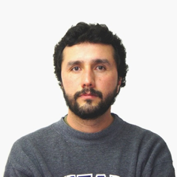

KEYNOTE SPEAKERS

Dr. Ortiz de Solórzano was born in Leon (Spain) in 1967. He holds Ms. (1992) and Ph.D. (1996) degrees in Telecommunication Engineering from the Universidad Politécnica de Madrid (Spain). From 1997 to 2000 worked as postdoctoral research fellow at the Lawrence Berkeley National Laboratory, a DOE owned laboratory managed by the University of California in Berkeley, CA. After finishing his postdoctoral training, he worked as a Scientist and later as Staff Scientist at the Lawrence Berkeley National Laboratory, where he directed the Bioimaging group until moving back to Spain in 2004. Since then he is the director of the Cancer Imaging Laboratory and the Imaging Core Facility at the Center for Applied Medical Research (CIMA) of the University of Navarra in Pamplona (Spain).
His research field includes the development of novel quantitative medical image analysis methods for the diagnosis of Cancer and the study of the etiology of the disease. His research has been funded by a wide range of funding agencies such as the US Department of Defense Breast Cancer Research Program, the University of California Breast Cancer Research Program, the Marie Curie European Union research program or the Spanish Ministry of Science and Education. The result of his studies have been published in over 50 international journal papers in prestigious journals such as Nature Genetics, Cancer Cell, Current Opinion in Biotechnology, IEEE Transactions on Medical Imaging, IEEE Transactions on Image Processing, IEEE Transactions on Biomedical Engineering, Journal of Microscopy-Oxford, Microscopy Research and Technique, etc.


Alfredo I. Hernández received the B.S. degree in systems engineering in 1993 from the Metropolitan University and the M.S. degree in biomedical electronic engineering from the Simón Bolívar University, both in Caracas, Venezuela. He obtained his Ph.D. degree in signal processing and telecommunications in 2000 and the “Habilitation à Diriger des Recherches” in 2009 from the University of Rennes 1, France. He is working since 2001 as a full-time scientist at the French National Institute of Health and Medical Research (INSERM), assigned to the Signal and Image Processing Laboratory (LTSI) of the University of Rennes 1. His research interests are in biomedical digital signal processing and model-based biosignal interpretation applied to implantable medical devices.


My current work involves the development of numerical tools for the analysis of brain structural and diffusion magnetic resonance imaging data. In particular, these include improvements to tensor-based morphometry, surface and volume registration, segmentation and statistics for group comparisons. I also work on applying these methods to different types of brain imaging data including for example prematurity, healthy brain development, healthy twins, blindness, deafness, HIV/AIDS, autism and Alzheimer's disease. I am currently an assistant professor in Radiology and Biomedical Engineering at the University of Southern California and at Children's Hospital Los Angeles. I graduated with a Bsc in physics and mathematics from the University of Montreal and then obtained a masters in applied mathematics from Cambridge University, in general relativity. My PhD is in theoretical physics (Harvard University), and deals with quantum chaos in quantum billiards living on the plane and the pseudosphere. Afterward, I switched to neuroimaging and became a postdoctoral fellow at the Laboratory of Neuro Imaging, working with Dr. Paul Thompson.

Received his PhD from the Eindhoven University of Technology in 1992.
He is currently a full professor in electrical engineering at the National University of Mexico and a member of the National Research System. His research interests embrace computational models of visual information processing and their applications to digital image processing, among them, optical flow estimation, fusion, restoration and segmentation in medical imaging.
Dr. Escalante has authored more than 100 peer-reviewed research papers and book chapters and has served as a reviewer of several international research journals.
He has been participant or responsible for various national and international research projects, several of them in biomedical imaging. Dr. Escalante has been granted several awards, including the National University distinction for junior scholars in exact sciences in 1997.

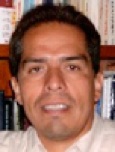

Eduardo was born in Colombia. In 1988 he obtained his diploma as a Medical Doctor from the Universidad Nacional de Colombia and as a Magister in Electrical Engineering from the Universidad de los Andes in 1995. He obtained his PhD in Biomedical Sciences from the Université Catholique de Louvain in 2000. Between 2000-2002 he worked as a Senior Researcher at the Communications and Remote sensing laboratory (UCL - Belgium), in the group of Medical Images. During 2003 he was at the Centro Nacional de Microelectrónica (CNM - Spain). Currently he is associated professor attached to the Telemedicine Centre of the Faculty of Medicine and leads both the Cimalab group and the Biomedical Engineering postgraduate program. His current interests are the discovering of biomarkers in different image modalities as the base of effective morphometrical methods.

Was born in Mexico City in 1956. Studied at Universidad Autónoma Metropolitana where he was a member of the second generation of undergraduate students in the Biomedical engineering program (1975) and the first generation of the Master’s program (1982).Prof. Azpiroz studied at Université de Technologie de Compiègne, where he obtained his Ph. D in Biomedical Engineering in 1992.
He worked at CINVESTAV as head of the Instrumentation Lab at the Physiology and Biophysics Department from 1981-1982 He joined UAM as an associate professor in 1982, where he was promoted to full professor and head of the research area of Digital Signal and Image processing in 1992. He was elected as Head of the Electrical Engineering Department from 1993-1996 and is now part of the Scientific Council (Board of directors) of the National Laboratory for Biomedical imaging and instrumentation (CI3M) at UAM-Iztapalapa


Dra. Verónica Medina obtained her B.Sc. and M.Sc. in Biomedical Engineering at Universidad Autónoma Metropolitana (UAM), México and her Ph.D. and “Habilitation à diriger des Recherches” at Université de Compègne in France. She has worked for more than 20 years in topics related to Brain Signal Processing, Medical Image Analysis and Pattern Recognition in Medicine. She has authored and co-authored more than 100 publications in journals, books and conference proceedings, including 44 scientific articles in national and international peer-reviewed journals; also, she has tutored 6 B.SC., 14 M.Sc. and 7 Ph.D. students. For more than 15 years she was member of the National Researchers System (SNI) and she belongs to several international academic societies.


Laser spectroscopy and photophysics of condensed matter. Instituto Nacional de Óptica Astrofísica y Electrónica (INAOE, México). December, 1996.Assistant Researcher at the atomic physics laboratory of the Physics Department at Imperial College, London. February, 2001 to March 2005. Under contract with Shimadzu Research Laboratories (Europe) Ltd. (United Kingdom): Mass spectroscopy and design and development of highly sensitive pyroelectric sensors in analytic systems. Full time associated researcher. Founding member of the laboratory of biomedical, physical and computational imagenology. Research and development in condensed media photonics for the development of synthetic models (phantoms) and analytic devices for applications Member of the National Researchers System .

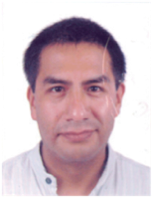
Since 2010 an associate professor at the Signal and Image Processing Laboratory (LTSI - INSERM 1099) in the ISTIC-University of Rennes 1, France. Since 2012 he is member of the INSERM Scientific Specialized Commision (CSS8-Technologies pour la Santé, Thérapeutiques, Biotechnologies). His main research activities are in image processing and computational methods for Prostate Cancer Radiotherapy in collaboration with the Centre Eugene Marquis for cancer treatment. He worked as a research scientist in CSIRO in Asutralia between 2005 and 2009, based first at Westmead Hospital in Sydney (where he undertook the segmentation of paediatric CT images) and then at the Australian e-Health Research Centre in Brisbane where the focus of his research was in medical image processing for the study of Alzheimer’s Disease as being part of the biomedical imaging team. Since 2012 he is member of the INSERM Scientific Specialized Commision (CSS8).

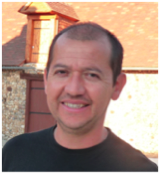
Dr. Karim Lekadir studied mathematics and engineering in France (Universite de Bourgogne, CESTI Paris) and in Germany (RWTH Aachen), before receiving his PhD in computer science in 2009 from Imperial College London, United Kingdom. In 2011, he was awarded a Juan de la Cierva research fellowship from the Spanish Ministry of Science and Innovation and joined the Universitat Pompeu Fabra, Barcelona, in Spain. Dr. Lekadir’s research interests include medical image analysis and computational anatomical modeling, with applications to cardiovascular assessment and treatment. He participated in several national and European research projects in the United Kingdom and Spain, in particular in the European Union funded euHeart project, which targeted the development of patient-specific computational models of the heart, for the study and personalized treatment of cardiovascular pathologies.

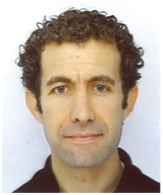
Education
Ph.D. Electrical Engineering, UNC/CERN, 2010.
Network Security, Sun Microsystems, Paris, 2000.
B.S. Systems Engineering, National University, 1990.
Experience
National University, Department of Systems Engineering, Associate Professor, June 1991–present.
Software Development Director, Antonio Nariño University, 2000–2009.
Intergraph Corp., Project Manager Caramba (Vizfx), 1996–1998.
Fields of Research Interest: Software Engineering, Distributed Systems, Computer Graphics.
Research: unGrid Project: http://ungrid.unal.edu.co, 2003–present.
Computer Imaging and Medical Applications Laboratory: http://www.cialab.unal.edu.co/, 2005–present.
Patents: Apparatus and method for applying effects to graphical images: http://patft.uspto.gov/, US Patent #6204851, 2001.


Fernando Arámbula Cosío is a full time Lecturer at the Centre of Applied Science and Technological Development of the National Autonomous University of México (UNAM), since 1997. His main research interests are medical image analysis and computer assisted surgery. Since 2008 He is the Head of the Postgraduate Program in Computer Science and Engineering, at UNAM. Fernando Arámbula has published 14 papers in international ISI journals, as well as more than 25 conference papers, in the fields of biomedical image analysis and computer based surgery simulation.
He has supervised 12 M.Sc. students of electrical engineering and computer science. He has been responsible of 9 publicly funded projects (UNAM, CONACYT, or ICYTDF).

